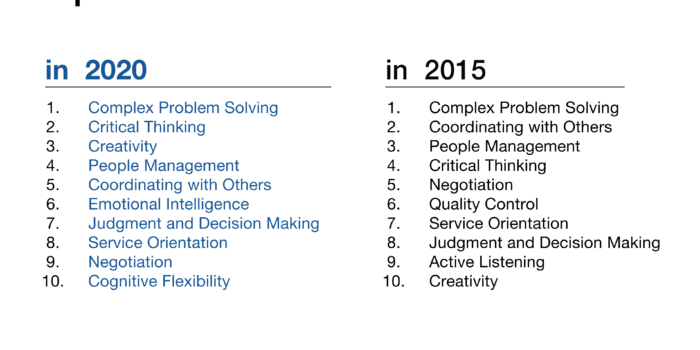I wrote last year about the impact on talent as EU nationals seek to leave the UK to either repatriate or find another European home. But now Brexodus has ratched up a gear. I am experiencing a spike of unsolicited requests from British nationals wanting to relocate to the EU. The phrase sinking ships comes to mind. This is supported by colleagues in the recruitment industry on mainland Europe. We have seen an uptick in EU citizens leaving the UK and we are now also experiencing an increase in UK citizens departing, an 8,000 increase on 2016.
The exodus, is probably a Brexodus and is the highest level of emigration since 2012. Combined with lower levels of immigration this gives a net migration fall of 25% to 246,000 people post 2016.
Short or long-term?
Nicola White, the Head of International Migration Statistics at the Office of National Statistics said “These results indicate that the EU referendum result may be influencing people’s decision to migrate into and out of the UK, particularly EU and EU citizens. It is too early to tell if this is an indication of a long-term trend.”
Currently, a British person is entitled to live and work anywhere he or she wants to in the EU without a visa or work permit. You can travel wherever and whenever you like. You can live in any of the 28 member states for as long as you choose and you have the same employment rights as if you were from that geographic region.
Post-Brexit uncertainty
After Brexit, it is very likely that each member state will impose the same visa rules that they do on other non-EU countries. In other words, they are entitled to insist on a work related visa and for you to satisfy any other local conditions and criteria for long-term residency.
One of the most unsettling elements of the whole of this shambolic mess is the uncertainty surrounding any potential outcomes. It is estimated that 3 out of 5 businesses are moving all or part of their operations out of the UK to mainland Europe. The other oft forgotten element is that the Freedom of Movement restriction that the UK so desperately seeks, applies to UK nationals in the EU. It’s a two-way street. This has taken many Brits by surprise. Within months the ability to up sticks and relocate without so much as second thought will become a greater challenge. British nationals will have third country status requiring a more vigilant process around obtaining a visas for right of residence and right of work.
The people reaching out to European based recruiters and head hunters, in my anecdotal experience tend to be internationally minded younger people. The first group is composed of British citizens who were often born or spent time overseas and enjoy an international outlook. The other demographic is made up of those UK nationals who don’t want to lose the benefits that the EU offers.
Julian (32) was born in Hong Kong and even though he was educated in England and his partner is a quintessential British lass he said “The UK is turning inward. I think it will be an economic catastrophe and a cultural Armageddon. We just want to move out. We are targeting Amsterdam and Berlin. I want to be in a place where they look to the future and are not dragging up images of D-Day!”
No-deal Brexit
Even if the UK leaves with no deal in place, Brits will not need a visa to enter another EU country for short stays on holiday. You can continue to travel freely within the EU using your current passport at the time of writing. However, when expatriating for a longer period to work, national arrangements will apply. You should look at the regulations for the country of your choice. You may have sponsored support in a host country by an employer, but may be limited to move within Europe. This will be especially tough on self-employed people or contractors who work cross border. Individuals residet in Europe will be advised to seek dual nationality if the host country permits that. Some countries are openly welcoming talent especially in the healthcare, tech and innovation sectors.
Other downsides may emerge. The Swiss government says it will limit the number of Britons who can enter the country to live and work if Britain leaves the European Union without a deal on March 29. Britons will be treated like all other non-EU citizens. See resource link below.
Key dates
This information which is applicable to most countries has been taken from France Rights Info.
31 December 2020 is “the end of the transition/implementation period, which would begin on Brexit day and last until 31 December 2020. This date – known as the ‘effective date’ – is crucial, as it’s the date on which you must be ‘legally resident’ in France to have your ongoing rights covered under the WA. This includes people who have moved to France after Brexit day but before the end of transition on 31 December 2020, who will be covered by the WA on the same terms as those resident before Brexit day itself.
If there is no deal by December 2020 and the UK fails to negotiate a future relationship/trade deal by the 31 December 2020 and there’s no extension to the transition agreement. This is often referred to in the media as a second no deal point.
If this should happen, the UK would automatically default to trading on WTO terms. However – and this is important – the Withdrawal Agreement would remain in place as an international treaty and the rights that it includes for us would remain covered. They cannot be removed even in the absence of a trade agreement. Once the Withdrawal Agreement is in force, we will be covered by it for our lifetimes whatever happens with future negotiations.”
I would still advise you to seek national advice in your target destination.
Brexodus job search tips
In response to the number of people who have contacted me here are some Brexodus job search tips.
If you work for an international company in the UK ask for or position yourself for a transfer to one of their subsidiaries in a European location. If you take a longer tem view you could even join try to join a European company in the UK with a view to an international assignment at a later date. Sometimes companies will pay for language lessons and take care of all the visa arrangements. Others only offer local contracts, but it’s still worth a shot.
In the meantime for any Brit who wants to Brexodus I would strongly advise you to start a language course. It is true that many companies have English as a lingua franca, but knowledge of a local language is a bonus to help with onboarding and cultural integration. Britons lag behind the general level of language capability with only 38% of people speaking one foreign language compared to 56% in the EU overall. Many countries insist on knowledge of the local languages as a requirement for permanent residency. Check that out early on in your destination of choice. In some cases it is B2 level, advanced intermediate, which in practical terms is almost fluent.
Stephen Doyle told me “I did Spanish in school to GCSE level which means absolutely nothing. I can just about manage to buy a beer. My girl friend and I enrolled in an intensive language course and are looking for jobs in the Barcelona area.”
Applications to companies located in Ireland have seen a significant up tick. Many British people particularly in the 18-24 age group see this as a first step in a longer term plan to accessing the EU market.
Margaret and Sid describe themselves as a typical DINKY couple – dual income no kids yet. They are looking for jobs in Ireland as an interim step. “Ireland has become very international especially Dublin. They have a progressive culture and obviously speak English. Although immigration is high there seems to be a more tolerant atmosphere. As a mixed race couple Sid – short for Sidhya has experienced some overt racism here in England. Nostalgia seems to be a national virus with everyone looking back to the past. It’s depressing ”
-
Target companies which have already relocated
Find out which companies are relocating or have relocated and to where and which counties are open to welcoming new talent. Create a focused search and build compelling narrative around why you should be part of that move and what value you can add. If there is any possibility that the organisation might have to sponsor you as an overseas worker then you have to be even more convincing.
The bar sadly has now been raised for British candidates.
If your network has been predominantly local, now is the time to extend your range and reach out to network contacts located in EU countries. Alumni networks can be a good place to start, professional associations with branches in European locations and British groups or Chambers of Commerce located in the regions of your choice will also be helpful. Start to develop a picture of what is going on locally and tap into local advice.
Sign up on various job portals that advertise jobs throughout Europe. Fine the one that best match your educational skills and language abilities. LinkedIn also offer this facility by geographic region.
One of the important things to remember is that recruiters and head hunters work for clients. If they have an opening in line with your background qualifications and experience, any recruiter would usually be pleased to consider you. Now, with potentially additional effort and cost required to sponsor an overseas worker (which is what you now will be) it is possible that British candidates will not be given the same priority. If have an exceptional skill set or one that is in short supply that will make a difference. We are currently in a candidate driven market so that will help. But economic uncertainty also brings the threat of a downturn and the situation may change.
Otherwise you will be treated like any other third country national. In summary don’t expect miracles. Be strategic in your applications and think long-term. It may take a couple of stages to get where you want to be. Please see resource links below the contact form.
If you need help with Brexodus job search tips – get in touch
Some resources:
Germany: Visa regulations
France: Visa Regulations
Netherlands : Page on nlembassy.org
Belgium: Travel to Belgium
Spain:http://www.exteriores.gob.es/Por…
Portugal: Portal SEF
Switzerland (Non EU!):http://www.eda.admin.ch/eda/en/h…
https://www.expatica.com/ch/sw-british-expats-face-quotas-in-switzerland/
Austria: How to Apply for a Visa
Italy: Ministero degli Affari Esteri
Poland: Work permit for foreigner’s work in Poland















